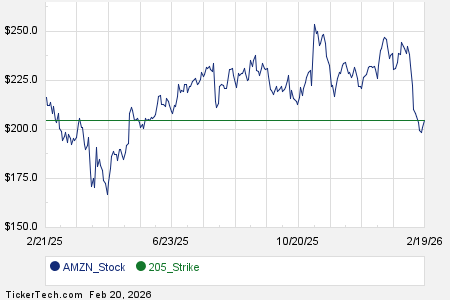In the realm of real estate investing, the contrast between the modest outlay of your own funds and the vast potential of borrowed capital is striking. You're about to navigate the complex but rewarding world of strategic leverage, where the right debt can escalate your property value and expand your portfolio exponentially.
It's essential you grasp the nuances of this powerful tool, as mismanagement could jeopardize your financial stability. By leveraging intelligently, you could not only secure multiple properties but also enhance your cash flow and tax deductions. However, you need to keep in mind that with amplified profit potential comes a proportional increase in risk.
As you stand at this crossroads, consider how adopting a strategic approach to leverage could unlock new levels of real estate wealth for you. Let's uncover the steps to master this balancing act, ensuring your journey towards financial growth is both calculated and secure.
Key Takeaways
- Leverage in real estate can increase the potential return on investment, but it also comes with increased risks.
- Ways to access leverage in real estate include using your own savings, obtaining a mortgage, partnering with others, or getting seller financing.
- Benefits of leveraging in real estate include the ability to purchase properties with a small down payment, increase real estate net worth, and take advantage of property appreciation.
- Risks and considerations of leveraging in real estate include increased financial risk, interest payments and fees, potential foreclosure, and market conditions affecting property values.
Understanding Real Estate Leverage
To effectively harness real estate leverage, you must grasp how using borrowed capital can amplify your investment's potential returns and risks. Leveraging strategies offer a path to expand your portfolio rapidly, yet you're also exposed to leveraging risks if the market shifts unfavorably.
It's critical to analyze market trends and property values, ensuring your investment decisions are data-driven. By borrowing to invest, you gain the possibility to magnify your gains; however, it's a balancing act that requires strategic thinking.
You're not just investing; you're also managing debt, and that debt can either serve as a catapult to wealth or an anchor to financial strain. Your liberation hinges on your ability to employ leverage judiciously, always aware of the thin line between success and overextension.
Accessing Leverage Opportunities
Understanding the nuances of real estate leverage equips you with the foundation to navigate the myriad of opportunities for accessing borrowed capital to amplify your investment reach. By strategically employing leverage, you're not just investing money; you're crafting a path to financial liberation, maximizing returns while astutely managing leveraging risks.
Consider these key access points for leverage:
- Traditional mortgages, offering a lever for capital expansion with minimal initial investment.
- Home equity lines of credit, turning existing equity into a powerful tool for further acquisitions.
- Real estate investment loans, specifically tailored to investors looking to scale their portfolios.
Strategically accessing these opportunities requires a nuanced understanding of market conditions and risk assessment—ensuring that each move you make is a calculated step toward building your real estate empire.
Advantages of Strategic Leverage
While leveraging in real estate intensifies risks, it also significantly magnifies your ability to grow wealth when used judiciously. Real estate leverage strategies aren't just about seizing the moment; they're about crafting a future brimming with potential. You're not just buying property; you're leveraging for long-term wealth, building an empire brick by brick with strategic acumen.
| Advantages of Strategic Leverage | How it Supports Wealth Building |
|---|---|
| Amplified Returns | With less capital, gain more exposure to real estate growth. |
| Access to More Properties | Diversify by acquiring multiple assets. |
| Tax Deductions | Mortgage interest can reduce taxable income. |
| Inflation Hedging | Fixed mortgage payments can become cheaper over time. |
| Equity Build-Up | Tenant rents contribute to loan repayment, growing your equity. |
Understand, strategic leverage isn't a reckless gamble—it's a calculated maneuver to liberate your financial future.
Potential Leverage Pitfalls
Despite its advantages, leveraging in real estate comes with pitfalls that can undermine your investment if not navigated carefully. You're seeking freedom and control over your financial future, but without a keen eye for evaluating risk, you could find yourself in a precarious situation.
To avoid potential traps, consider these strategic points:
- Over-leveraging: Taking on too much debt can strain your cash flow.
- Market Volatility: Real estate markets fluctuate, impacting property values and rental incomes.
- Interest Rate Risk: Rising rates can increase your borrowing costs, squeezing your profits.
When exploring leveraging alternatives, ensure they align with your long-term wealth-building strategy. Your goal is liberation, not entanglement in avoidable financial snares. Always weigh the risks against the potential rewards.
Smart Leveraging Techniques
To harness the full potential of leverage without falling prey to its risks, you'll need to employ smart leveraging techniques that balance ambition with prudent financial planning. Start by conducting meticulous market research; knowledge is your first line of defense in risk management.
Diversify your portfolio to mitigate against market volatility—spreading your investments can be a safeguard against localized downturns.
Maximizing returns means optimizing debt-to-equity ratios. Be strategic: secure low-interest financing and lock in favorable terms. Use leverage to amplify your gains, but maintain a cash reserve to cushion against fluctuations.
Regularly reassess your investments against market dynamics, and be ready to pivot when necessary. In leveraging, as in chess, the shrewdest players anticipate moves and think several steps ahead.
Seeking Professional Advice
Consulting with seasoned professionals can provide invaluable insights and guidance as you navigate the complexities of leveraging in real estate investment. These experts help you devise a strategic plan, ensuring you're evaluating risk effectively and understanding tax implications—all critical for liberating your financial future.
- Risk Assessment: Professionals can analyze market trends and investment viability, safeguarding against over-leverage.
- Tax Strategies: They'll navigate you through tax codes to optimize deductions related to mortgage interest and property depreciation.
- Legal Compliance: Advisors ensure your investment strategies adhere to regulations, avoiding costly legal pitfalls.
Don't underestimate the importance of professional advice in your leveraging endeavors. It's a strategic move that not only enhances your decision-making process but also positions you for sustainable wealth creation in the dynamic world of real estate.
Staying Informed on Market Trends
Understanding the real estate market's trends is crucial for leveraging your investments effectively and making informed decisions. You've got to keep your finger on the pulse by analyzing market data and tracking investment trends. This strategic approach enables you to anticipate shifts, adapt your strategies, and seize opportunities that align with your goals for financial liberation.
| Trend Analysis | Benefit | Action Point |
|---|---|---|
| Historical Pricing | Predict Future Moves | Invest or Divest |
| Rental Market Data | Optimize Cash Flow | Adjust Rent Levels |
| Economic Indicators | Gauge Market Health | Tailor Investment Strategy |
| Investment Hotspots | Identify Growth Areas | Focus Acquisitions |
Frequently Asked Questions
How Does Leverage in Real Estate Investing Impact My Personal Credit Score and Borrowing Capacity for Other Financial Goals?
Leveraging in real estate affects your credit score by increasing credit utilization, potentially raising interest rates on future loans, thus impacting your borrowing capacity for other financial goals. Analyze this risk strategically.
What Are the Implications of Cross-Collateralization When Leveraging Multiple Properties?
You're facing higher risks with cross-collateralization, as one property's issues can affect the others. Ensure investment diversification and risk management to protect your portfolio from potential financial domino effects.
How Does the Use of Leverage in Real Estate Investing Align With Retirement Planning and Long-Term Wealth Stability?
You'll find leveraging real estate can align with your retirement by carefully assessing risks and smart asset allocation, ensuring long-term wealth stability and potential liberation from financial constraints in your golden years.
Can Leveraging in Real Estate Create Opportunities for Estate Planning and Intergenerational Wealth Transfer?
You can leverage real estate to strategically plan your estate, reduce estate taxes, and secure beneficiary designations that ensure intergenerational wealth transfer, offering your heirs financial liberation and long-term stability.
What Are the Environmental and Ethical Considerations When Leveraging Heavily in Real Estate Development Projects?
You must consider the environmental impact and ethical investing when leveraging in real estate. Assess if projects harm ecosystems or communities, and strategize to mitigate negative effects while pursuing financial liberation.









